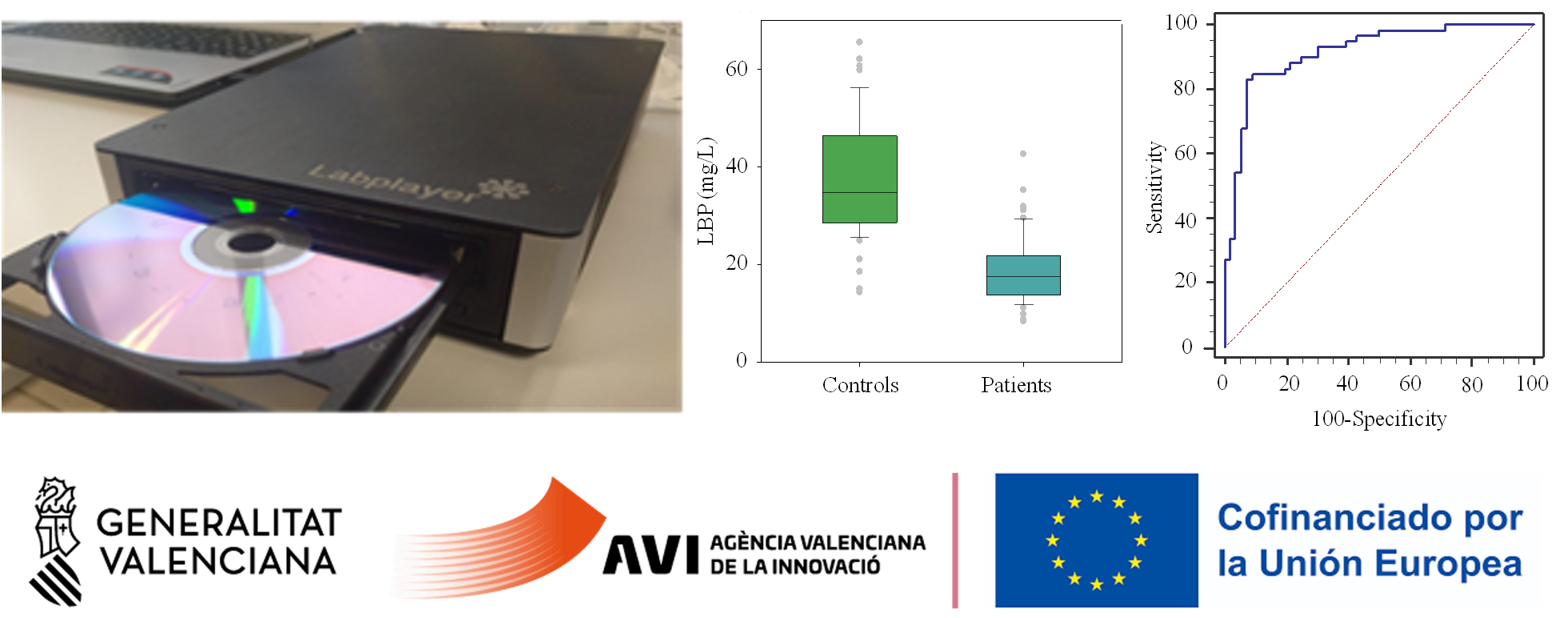
Cardiovascular diseases, including venous thromboembolism (VTE), represent a worldwide health concern due to the formation of venous blood clots. Diagnostic accuracy and early detection of VTE are critical for its effective management and prevention of fatal consequences. However, current diagnostic methods, such as clinical evaluation and imaging techniques, have limitations in terms of diagnostic accuracy and efficiency.
In order to address this challenge, a study presenting a biosensing system for the rapid and reliable diagnosis of VTE at the point-of-care was conducted by the Señal y Media en Química (SYM) group at IDM. This approach uses a compact optoelectronic analyzer and assay platform with antibodies specific for lipopolysaccharide-binding protein (LBP), a potential biomarker.
Through untargeted differential proteomic analysis of plasma samples from VTE patients and control subjects, the research team identified LBP as a potential biomarker. The biosensing system demonstrated excellent results, achieving diagnostic sensitivity and specificity of 83.1% and 92.9%, respectively, in a cohort of 117 human plasma samples.
These results highlight the clinical discriminatory power of LBP as a potential biomarker for venous thromboembolic disease. In addition, the technology developed by the SYM team has the potential to facilitate the development of biosensing systems for home health monitoring, which could revolutionize the diagnosis and care of patients with VTE.
Drs. Maquieira and Morais, investigators of the study, commented, "Our biosensing system represents a significant advance in the diagnosis of venous thromboembolism. The identification of LBP protein as a potential biomarker is a promising tool for more accurate and rapid detection of this serious disease. In addition, this technology has the potential to transform the way health is monitored at home, improving the quality of life of patients with VTE".
The study opens new perspectives in the field of cardiovascular disease diagnostics, highlighting the potential of LBP protein as a biomarker for VTE. Dr. Morais points out the innovative approach of the very promising results. This scientific advance will contribute to better disease management and more accurate and efficient medical care.
In this sense, the Scientific Innovation Unit of the IDM (UCIE-IDM), funded by the Agència Valenciana de la Innovació (AVI), has been working on the valorization of a system for the simultaneous determination of the levels of several specific biomarkers in blood for the diagnosis of heart disease.









